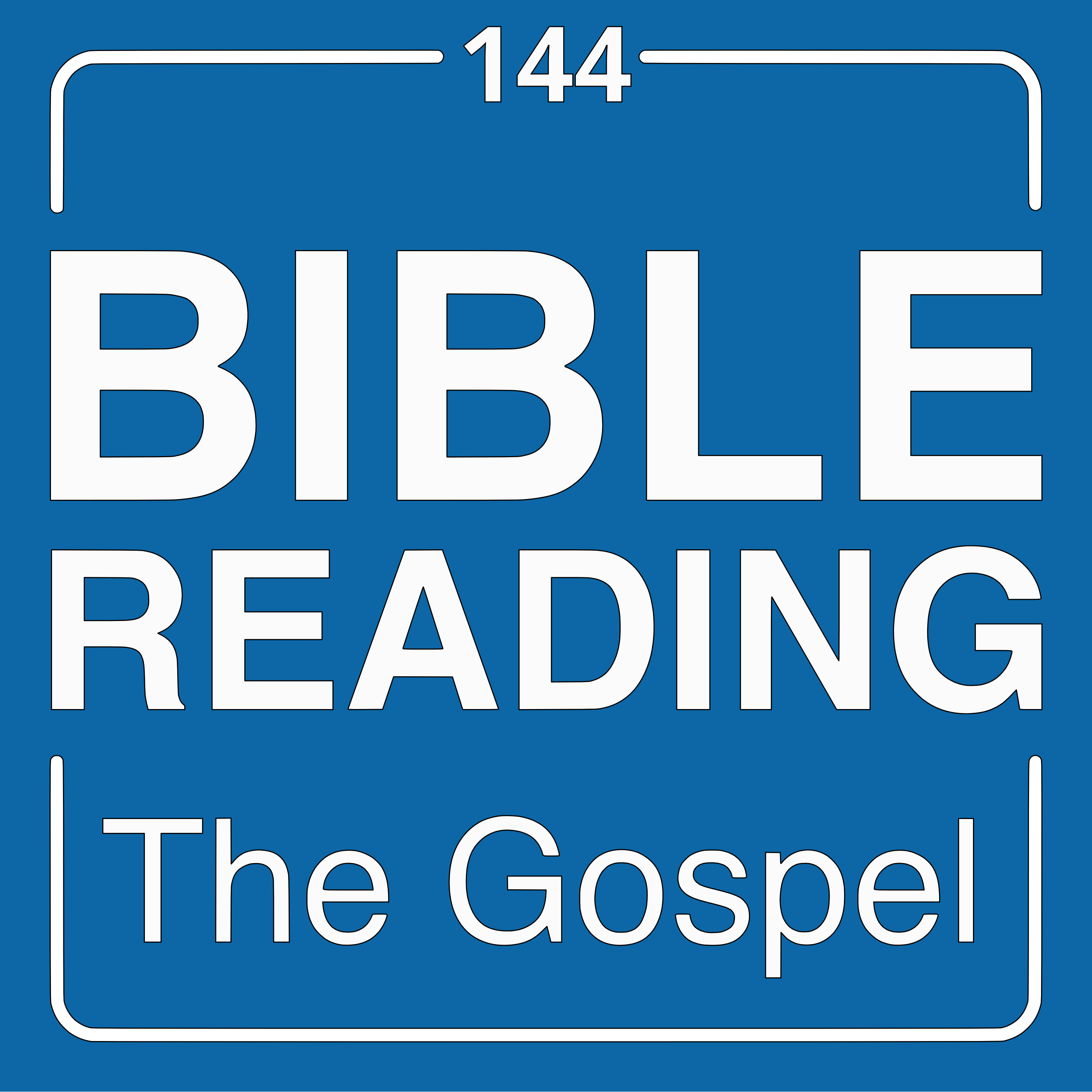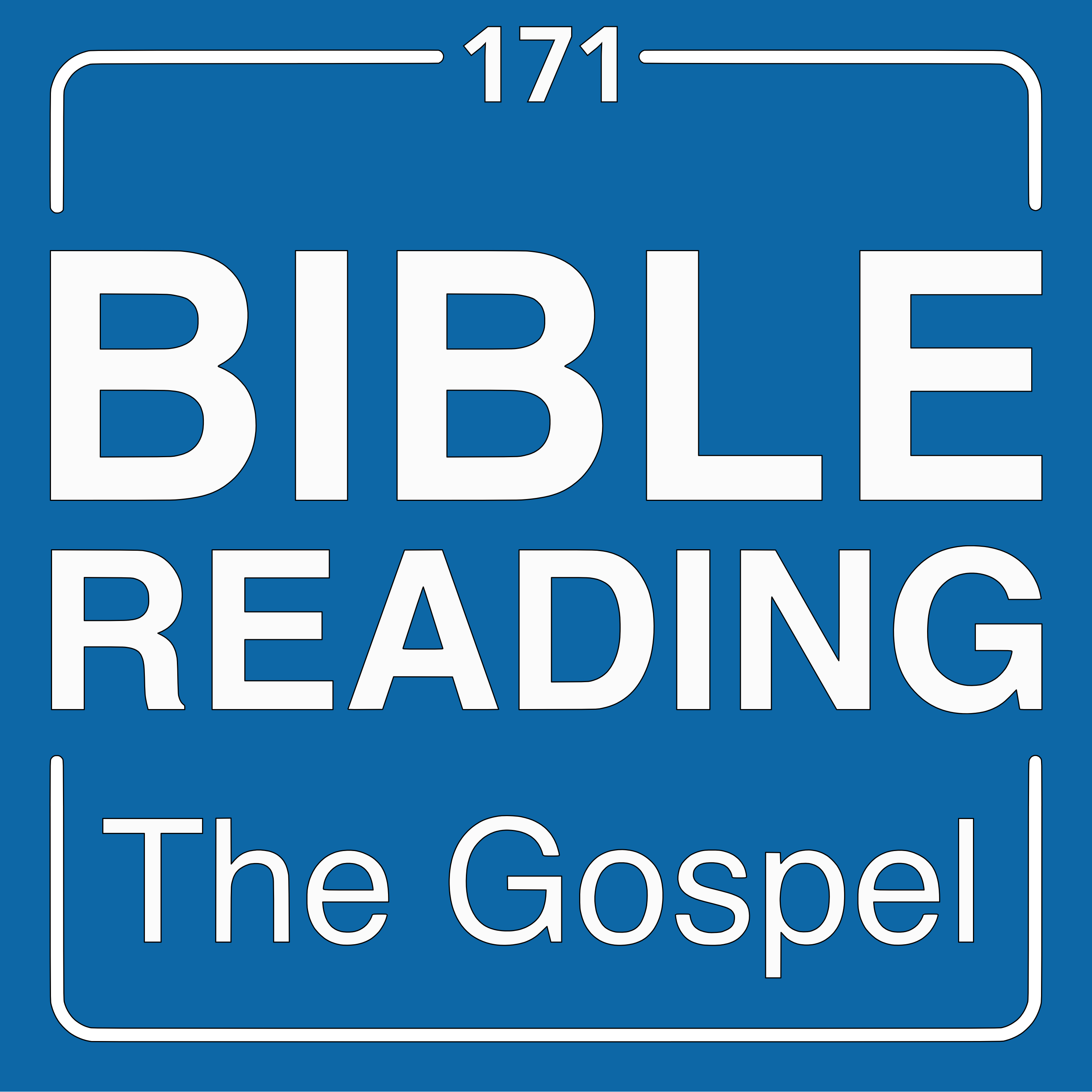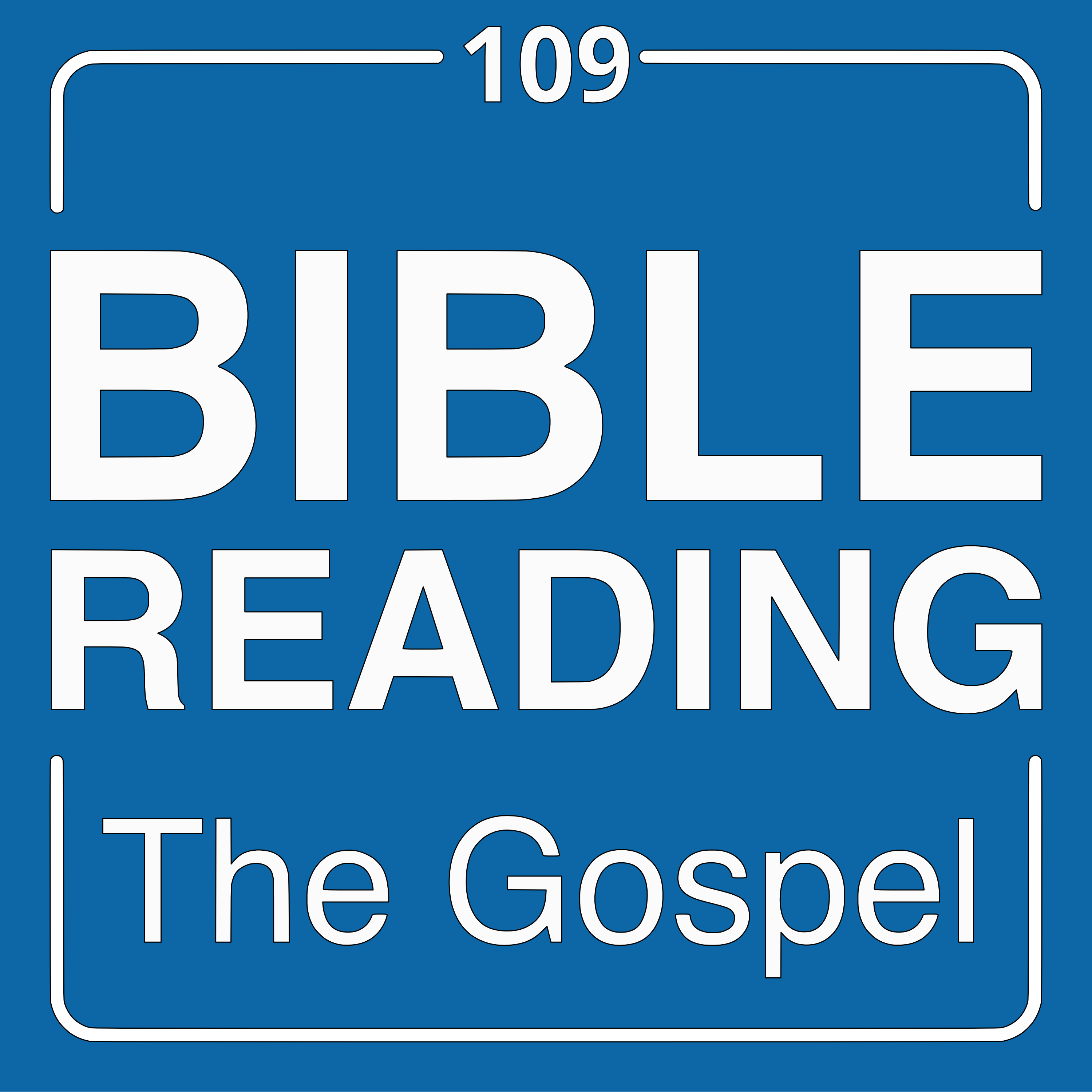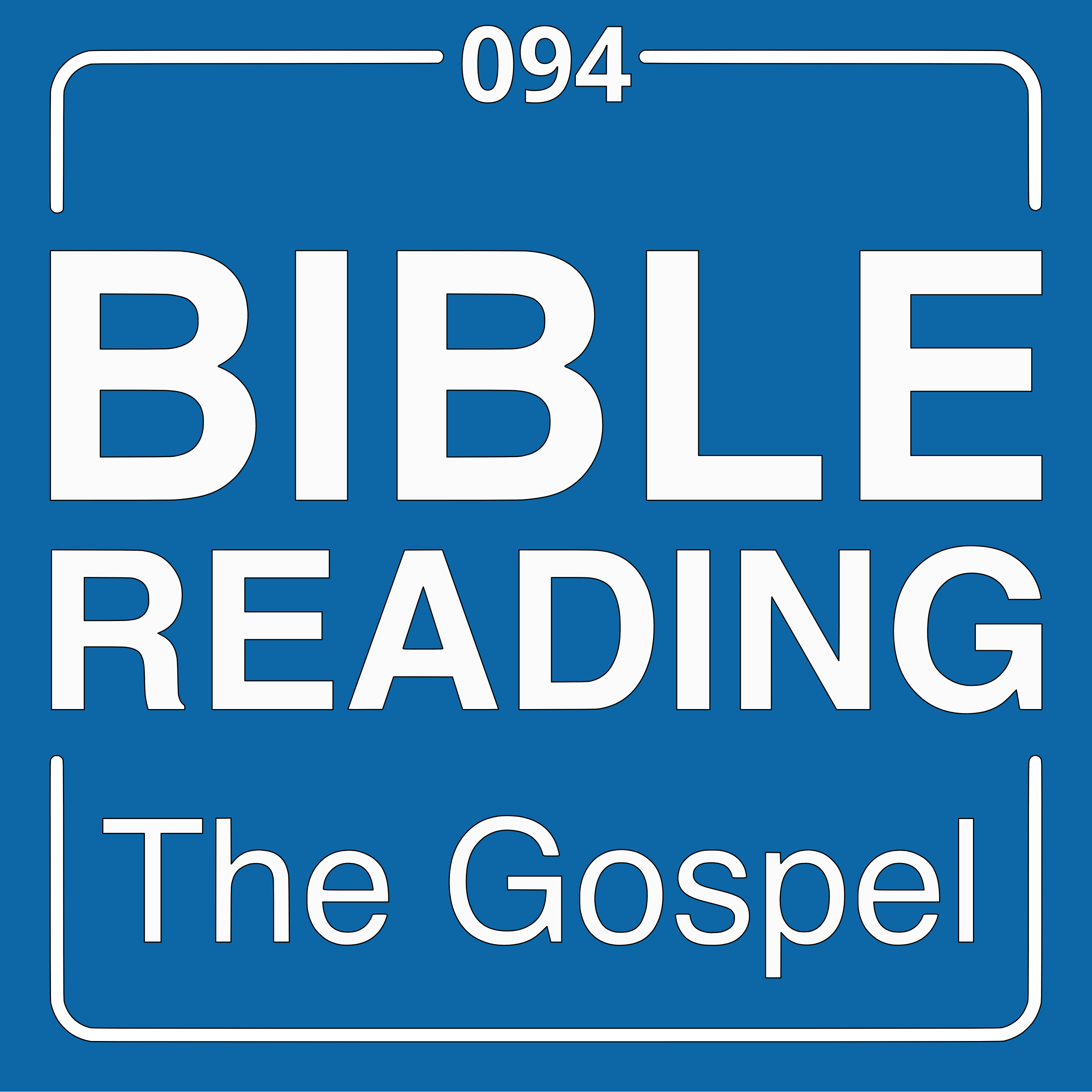Episode Transcript
[00:00:24] Speaker A: Hello. I'm Josh.
[00:00:25] Speaker B: And I'm Gabriel.
[00:00:26] Speaker A: And today on reading the Gospel, we are studying the event, the triumphal entry. This is found in all four gospels. Matthew, chapter 21, 111, which we will be reading. Mark, chapter eleven, 111. Luke, chapter 1929, 44. And John, chapter 1212 through 19. Follow along with us in your bibles as we read Matthew, chapter 21, beginning in verse one.
[00:00:57] Speaker B: Now, when they drew near to Jerusalem and came to Bethphage, to the Mount of Olives, then Jesus sent two disciples saying to them, go into the village in front of you and immediately you'll find a donkey, tithe and a colt with her. Untie them and bring them to me. If anyone says anything to you, you should say, the Lord needs them, and he will send them at once.
This took place to fulfill what was spoken by the prophet, saying, say to the daughter of Zion, behold, your king is coming to you. Humble and mounted on a donkey, on a colt, the fold of a beast of burden.
[00:01:43] Speaker A: The disciples went and did as Jesus had directed them. They brought the donkey and the colt and put them on them, their cloaks, and he sat on them. Most of the crowd spread their cloaks on the road, and others cut branches from the trees and spread them on the road.
And the crowd that went before him and that followed him were shouting, Hosanna to the son of David. Blessed is he who comes in the name of the Lord. Hosanna in the highest. And when he entered Jerusalem, the whole city was stirred up, saying, who is this? And the crowd said, this is the prophet Jesus from Nazareth of Galilee.
So this final week starts with great fanfare. The crowds are gathered around, Jesus is coming into Jerusalem as a king.
There's kingly terminology used throughout Hosannada. The son of David was a cry that they would use for kings, throwing down their blankets and putting palm branches down their coats. Excuse me.
[00:02:52] Speaker B: And the way Jesus was riding this donkey was exactly the same. David and Solomon marched into Jerusalem when they were invited to be coronated.
[00:03:04] Speaker A: Here's my question.
Jesus was not coming as a military messiah to conquer the Romans, to set up a kingdom here on the earth, to reestablish a throne of David on the earth for the israelite nation.
So was it, like, wrong for the people? Because they're thinking that this is it, this is Jesus coming, he's setting up this kingdom. We're going to overthrow our oppressors.
[00:03:37] Speaker B: It is very interesting how we develop expectations, and sometimes we are biased based on those expectations. When we read the word of God in the Old Testament prophecy, you have this one that is quoted in the Gospel of Matthew. But also you have Isaiah, chapter 53. So you have both of them. And we have to find the right balance or how they are going to blend in reality.
Let me take a different faith.
We need some kind of evidence on which to establish or to build our faith. But that evidence will never be 100% complete, would always be some room for doubt.
So those who are looking to get closer to God, those who really want to establish a relationship with him, would have enough evidence for that. And those who are looking for reasons to reject Jesus Christ and the existence of God, we'll found some reason there. And this is how faith works. And it seems that in the same way the triumphal entrance in Jerusalem, on one side it was a public event resembling the entrance of David and Solomon, stirring some expectations.
On the other side, Jesus Christ has been marching toward Jerusalem for a while, touching people's lives, both with the gospel and with his healing power, inviting some people to repent a couple of days before he walked into the house of that tax collector. That was a miracle in itself, a turning around of a life.
If you focus on just one, based on your religious, nationalistic expectations, you see a political or military messiah.
On the other side, if you are close to Jesus Christ, you will see his character, you will see his humility, you hear his prayers, his dependence on God. He says, I don't do anything of myself. I do only the will of him who sent me.
[00:05:54] Speaker A: And if we back up and see the bigger picture, I think this is the beginning of Jesus coronation of king of kings and lord of lords, the ruler of this earth. Because when Jesus created this world, when God created the earth, he put Adam in the garden and he gave Adam dominion. So Adam was to be the ambassador, the representative, the prince of the earth.
That was the ideal. And if sin didn't enter, he would have gone up and been in the council of God. He would have represented humanity.
But when he sinned, he gave that power to Satan. And Satan claimed the earth as his dominion, his domain. This is mine. I'm the prince of this earth. But here we have Jesus coming and starting his claiming, the coronation, the king of kings, lord of lords, that, no, I'm not coming as prince of this earth. I'm coming as king of this earth.
And you know, when we look at Prince Charles, his coronation took a long time.
Events happened before he even sat down on the throne. And so Jesus has yet to die on the cross. But we start seeing it happen and it happens with sinful humanity lifting jesus up, saying, he is our king.
[00:07:14] Speaker B: Jesus Christ established his kingdom in our hearts. Jesus said, the kingdom of God is among you. In the midst of you.
Now the kingdom is more visible. And on the day of resurrection, the resurrected Jesus Christ was one step even further on this process. In the day of Pentecost, he was coronated in heaven, and as a result, gave the gifts of the Holy Spirit to people, you know, on earth. So that was the day of Pentecost. And at the second coming, in the book of revelation, he will come as the king of king and lord of lords, and his kingdom will be established forever and ever.
[00:07:55] Speaker A: Yeah, exactly. And so I see this as kind of the beginning. Humanity saying, this is our king, even if they reject him later on in the week. And I think in my mind, I put the same people who are throwing down blankets and palm branches as the people who are saying, crucify him, crucify him.
And I think there's gonna be some of that. You know, some people. We've got crowd mentality there. There are people who go along with whatever.
Whatever other people are doing. Oh, look, there's this going on. I'm rooting for this team, or I'm doing this because it's popular. But I bet there were many in that crowd who weren't there, who weren't saying, crucify him, crucify him.
And I think the big question comes down to, are we someone who follows the crowd, who can change our views based on popular opinion, or are we someone who's going to stand and stand up for Jesus in times like this, but not deny him when it's popular? To deny him?
[00:09:14] Speaker B: Yes. That is a question we have to address.
[00:09:17] Speaker A: Yeah. And so we have, in this triumphal entry, this wonderful scene, Jesus coming over, seeing Jerusalem and seeing the temple and being ready to come in and to sacrifice his life.
So as Jesus is coming into Jerusalem, he's coming in as a king, and he's coming to lay down his life to sacrifice himself for those around him, for all of us, for you, for me, for everyone who's listening.
And it's not what the crowd was expecting.
And I think that's so true in our lives so many times.
God acts in ways that we don't expect. And this gets us back to where we started this conversation on faith, that there's enough information out there for me to believe in God, but there's always room for doubt.
There's enough there that I cannot prove to anyone that God exists, but I fully believe it in my heart.
And I think events like this build faith. It would build faith of those who were there in the crowd.
But in the same moment, there could be others who were in the crowd who saw the same thing, who leaned into the doubt, and who drew further away from Jesus.
[00:11:01] Speaker B: We are like trees. In the book of ecclesiastes, chapter eleven, there is a very interesting illustration that a tree will fall on that direction. It is inclined.
So we develop inclinations, and those are based on either our godly sanctified desires and plans and the way we are exposed to the holy word of God, or we develop inclinations based on our own desires, our own expectations, our own human plans, which are leaning on the opposite direction. And when an event like this happens, we already have that inclination and we move in that direction, or we see evidence for our inclinations.
[00:11:58] Speaker A: Takes me back to the story of the three Hebrews, when Nebuchadnezzar set up that golden statue on the plain of Dora and said, okay, everyone bow down and worship.
If those three had not already been listening to God and following God and hearing his prompts, I think it would have been very hard for them not to kneel down. Even if they prayed to God or pretended to tie their shoe or whatever. Said in their heart, they're saying, I'm not worshiping God. But because in other areas, we already know that they were serving God in their diet, they took a stand for God. It made it easier in these times.
Their inclinations had changed, and it was easier to do the right thing the right time.
[00:12:49] Speaker B: I like to go back to what you said before, and realizing that these people embraced Jesus Christ by receiving him as a king, using even this title, the son of David.
And the same crowds, five days later, they were screaming, crucify him. Crucify him.
Is it possible for us today to swing as much as those people in biblical times from one extreme to another?
[00:13:24] Speaker A: It is. And this is one thing that I continually tell people when I do personal Bible studies with someone, I share with them that it is not guaranteed that I will be a Christ follower next year. It's not guaranteed that you, Gabriel, will be a Christ follower. It's not guaranteed that any of us will be Christ followers next year. If we stop spending time with God, if we stop reading his word, stop praying, stop gathering with communities together, we stop sharing and witnessing with others. If we stop doing these things, we're going to grow to a place where we just don't care.
And so we can get to a place. I don't know how long it will take. It'll take different times for different people, but we can get to a place where we don't want God anymore, and so we could be like this crowd.
So that's why it's so important every day to ground ourselves in the connection with God, to be there and to let God know that we love him.
Let's pray. Father God, today.
Today we want to say, we love you.
[00:14:38] Speaker B: Amen.
[00:14:40] Speaker A: And, Father, I pray that you reveal yourself more and more to us so that love grows stronger each and every day. And I pray that we won't take our relationship for granted, but that we will plan on spending time with you each and every day, on sharing what we learn with others, even if it's just in our lives and a smile and our kind deeds.
May we be like you. In Jesus name. Amen. Amen.



